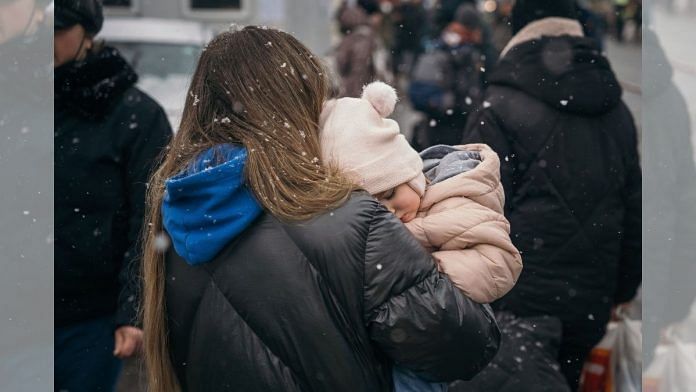Geo-politics, as it unfolds today, is facing the challenge of geo-sympathy because International Relations as a discipline has been anything but global, until now. Geo-politics has always neglected the normative aspects of International Relations, but now, the Western powers are calling for collective sympathy for Ukrainians. Gen Z is refusing to fall into that trap because it understands geo-sympathy, i.e. sympathy influenced by geography.
What has been happening in Ukraine since late February can be seen as the first full-scale war that Gen Z has witnessed as mature and opinionated adults. Therefore, it should be studied how they are seeing this war. After all, it will be this generation that will occupy positions around the world after some years from where they would be able to provoke, initiate, fight, negotiate and end wars. The events before, during and after this war will leave a lasting imprint not just on scholars of global politics but also on the psyche of people around the world, and Gen Z in particular.
Media, through which people around the world are witnessing what’s happening in Ukraine, is doing what it is infamous for. It is ironic to see photographs and videos of dead soldiers and bleeding civilians being flagged as sensitive content when guns, tanks, drones and missiles are glorified. Switching across news channels during primetime can put people in a dilemma. It can be really puzzling to decide who should they be angry at and for who should they feel sad.
On one hand are the sympathies for Ukrainian soldiers fighting for their homeland as well as for the large number of civilians who have been killed, injured or displaced because of the cold decisions made by a hot-headed person in the Kremlin. On the other hand are the sympathies for the Russian soldiers who fight willingly or unwillingly and the Russian citizens who are paying the economic and social price for the political decisions made by the Kremlin. There are also voices from the global south that are critical of a wide range of sanctions imposed on Russia. This has set the ball rolling for the debate on Western hypocrisy when it comes to war, aggression, intervention, refugees, expansionism and the plight of the societies on which conflict is imposed.
Also read: We have similar foreign policies, says Lavrov, and tempts India with oil & weapons
How to be politically ‘correct’
White House spokesperson Jen Psaki recently lectured the world on thinking about which side countries want to stand on when history books are written. However, one needs to think and ask about who is writing these history books, from where, and for whom? Since the discussions on Ukraine are taking place in a world that is more connected, interdependent, information-driven, and therefore, narrative-ridden than ever before, Gen Z is facing a new challenge. They are under pressure of sticking to the official positions, postures, and geopolitical realities of their respective nations in this conflict, in the name of rational understanding. Therefore, it’s becoming difficult to have perspectives that are global in nature.
The discourse on human lives lost, implications for women, environmental degradation, effects on children, the physically challenged and the marginalised sections are cornered and brushed aside on purpose. There is also an argument that raising a voice on such aspects can have a serious backlash for the West since all of them reek of colonialism, imperialism and racism. Gen Z sees ‘special military operations’ as no different from ‘war on terror’ or ‘humanitarian intervention’ because people of the host nation face similar socio-economic and environmental consequences. Therefore, when any territory is concentrated with military equipment, sympathies also converge.
There is no empirical mechanism to know if people around the world grieve equally for a person killed on either side in Ukraine. But it remains to be seen if the world will sympathise equally with the family of the last person killed before the ultimate ceasefire, and whether sympathies are as transnational as violence.
The author is a student at Central University of Gujarat, Gandhinagar. Views are personal




